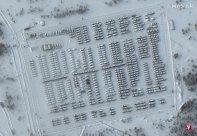(Washington Composite Electric) US Pfizer and German Biotechnology Corporation have submitted data to the US Food and Drug Administration (FDA) to seek emergency use authorization for the crown vaccine developed by children six months to four years old.EssenceThis application is expected to pass within this month.
Pfizer and Germany biotechnology are vaccines developed by young children under the age of five. The inoculation doses are only one -tenth of adults, that is, three micro grams.At present, the inoculation dose of children five to 11 years old is 10 micrograms; 30 micrograms are 12 years old.
Two companies said on Tuesday (February 1) that although they did not achieve the key goals in clinical trials in the age of two to four, they still submitted data to obtain emergency use authorization.They said that this was to submit data at the request of the US Food and Drug Administration to solve the urgent public hygiene needs of people in the age group.
FDA said that an external committee composed of expert consultants will meet with the issue of authorization on February 15.The FDA Agent Director Wood Cowcker pointed out that Omikon's infection cases have increased, "it is a top priority to provide safe and effective vaccines for children of this age."
According to the usual practice, the American Centers for Disease Control and Prevention (CDC) subsequently may hold its own consultant meeting to discuss documents on how to implement vaccine vaccination.These meetings are often held within one week after FDA make a decision.
Pfizer and Germany biotechnology said they are asking for the first two doses of the FDA approval of the three -dose vaccination plan.
President Burra said: "If the two -dose vaccine is authorized, children's parents can start to vaccine their children, and at the same time wait for the third dose to be authorized." He said that the company believes that three doses need three doses.Vaccine "to obtain high levels of protection, to cope with the current virus and variants that may occur in the future."Against the time list of this age group for several months.When the third agent was finally approved, many young children may have had early vaccines.The plan that Pfizer is currently being tested is that the first two doses are separated by three weeks, and then then inoculate the third dose after at least eight weeks.
Pfizer explained in December last year that children's immune response was different after vaccination.After inoculation of two -dose vaccine, the protective immune response generated by children from 6 to 24 months is comparable to those 16 to 25 years old.However, after the two to four -year -old children were vacated, the immune response failed to the same degree.
Earlier, FDA has approved adults and those over 12 years old to vaccinate the Pfizer vaccine.It also opened a green light for two -dose vaccine for children aged five to 11.
Since the inoculation plan of children's vaccination in November last year, only about 30 % of children in this age have been vaccinated and 22 % of them have been vaccinated and two doses.
The population under the age of five in the United States is about 23 million.Since the spread of Omikon in the United States in December, patients with crown diseases in hospitalization have risen.According to a report issued by the American Society and Children's Hospital Association on Monday, as of January 27, American children's coronary diseases accounted for 18.6%of the total, with an average of 15,161 infection per 100,000 children.


